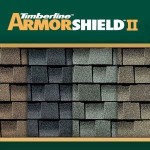What Are Old Farmhouse Sinks Made Of?
When planning a kitchen renovation, selecting the right sink is crucial to achieve a cohesive and functional design. Farmhouse sinks, characterized by their distinctive apron front, have become increasingly popular choices due to their rustic charm and versatility. Understanding the materials used in their construction is essential for making an informed decision that meets your specific needs and preferences.
The materials used in the construction of old farmhouse sinks played a crucial role in their durability and longevity. These sinks were often crafted from sturdy and enduring materials that could withstand the rigors of everyday use and the passage of time. Let's delve into the essential aspects of the materials used in the construction of old farmhouse sinks.
Cast Iron
Cast iron was a prevalent material used in the production of old farmhouse sinks due to its exceptional durability and resistance to wear and tear. Cast iron sinks possess a heavy-duty construction that provides excellent support and stability. Their non-porous surface makes them resistant to stains and bacteria, ensuring hygienic use. Additionally, cast iron is known for its heat retention properties, making it ideal for tasks such as washing dishes and soaking cookware.
Porcelain
Porcelain is another classic material employed in the creation of old farmhouse sinks. Porcelain sinks are renowned for their smooth, non-porous surfaces, making them highly resistant to stains and scratches. Their high-gloss finish imparts a sophisticated aesthetic that complements various kitchen styles. Porcelain sinks are also relatively easy to clean and maintain, adding to their practicality.
Copper
Copper was frequently used in the construction of old farmhouse sinks due to its inherent antimicrobial properties. Copper is naturally resistant to bacteria and germs, promoting a hygienic environment in the kitchen. Copper sinks have a distinctive patina that develops over time, lending a unique and charming character to the kitchen space. They are also known for their high heat tolerance, making them suitable for handling hot pots and pans.
Enameled Cast Iron
Enameled cast iron combines the durability of cast iron with the aesthetic appeal of porcelain. These sinks feature a cast iron base coated with a porcelain enamel, offering the best of both worlds. Enameled cast iron sinks resist rust and corrosion, ensuring longevity. The porcelain enamel coating provides a smooth surface that is easy to clean and maintain.
Stone
Stone, such as granite or marble, was occasionally used in the creation of old farmhouse sinks. Stone sinks offer a timeless elegance and natural beauty that can complement both traditional and modern kitchen designs. They are highly durable and resistant to heat and scratches. However, stone sinks require regular sealing to maintain their appearance and prevent staining.
Transition
The materials used in the construction of old farmhouse sinks played a defining role in their functionality, durability, and aesthetic appeal. Understanding the essential aspects of these materials is paramount when selecting a farmhouse sink for your kitchen. In the following sections, we will delve into the advantages and disadvantages of each material, providing valuable insights to guide your decision-making process.

The Search For A Vintage Farmhouse Sink Wildfire Interiors

Where To Find A Vintage Style Farmhouse Sink O

Where To Find A Vintage Style Farmhouse Sink O

The Search For A Vintage Farmhouse Sink Wildfire Interiors

The Search For A Vintage Farmhouse Sink Wildfire Interiors

The History Of Farmhouse Sink From Utility To Luxury Native Trails

Where To Find A Vintage Style Farmhouse Sink O

Where To Find A Vintage Style Farmhouse Sink O

The Search For A Vintage Farmhouse Sink Wildfire Interiors

36 Inch Cast Iron High Back Farmhouse Sink Vintage Tub Bath








